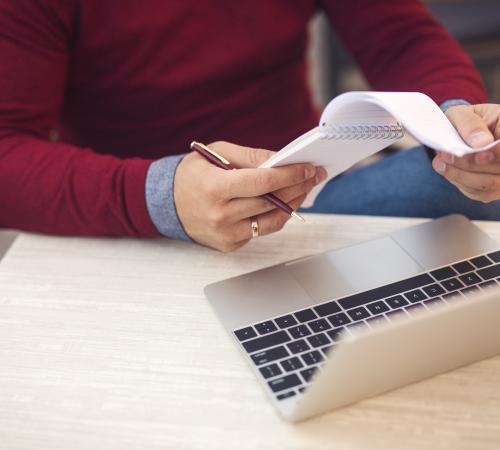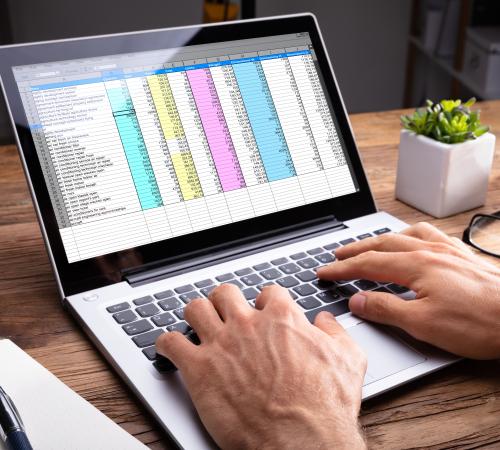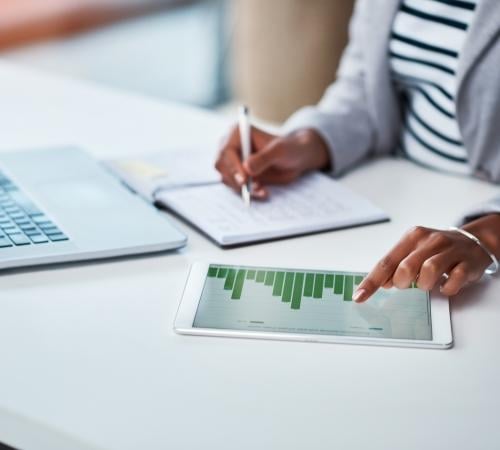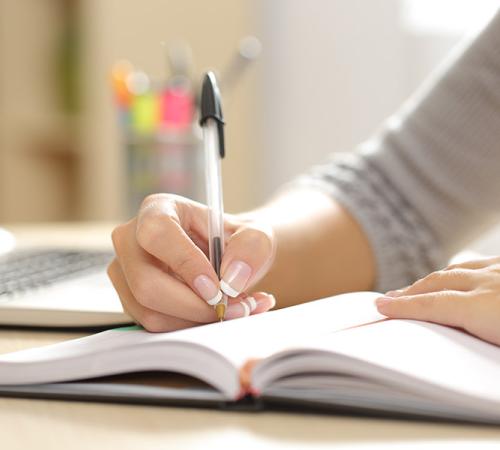

When you sell certain products and services, you’ll need to add this type of tax on to your original price for the customer to pay. That’s as long as your goods and services aren’t exempt from VAT rules and your business is VAT-registered [1][2].
Here, we’ll explain what VAT stands for and how the rules work for small businesses like yours.
What does VAT stand for?
VAT or 'value-added tax' is a type of consumption tax paid on products and services that consumers buy. This adds to the price people and businesses pay for goods and services. In the UK, this figure is usually absorbed into the customer-facing price.
This type of tax is a big revenue-generator for the UK Government. Taxes on consumer spending bring in the second largest revenue overall, according to the OBR (external link), and VAT is the most lucrative type to fall within this category [3].
Staying inside VAT rules can help a business keep within the lines of the law. Even though customers cover the cost, businesses are responsible for administering and reporting VAT correctly. Companies must also pay the VAT they have charged customers directly to HM Revenue and Customs (HMRC) [2].
VAT seeks to raise revenues for governments through everyday purchases. For many, it’s a normal aspect of everyday life, and a type of tax you’ll pay and administer more often than national insurance, corporation tax and capital gains tax. Around half of household spending in the UK is subject to a 20% rate of VAT, as outlined by government policy (external link) [3].
What is VAT paid on?
Most things your business sells are subject to VAT. It covers:
- Goods, such as tangible products
- Services, which might be IT consultancy or beauty services
- Items you hire out or loan
- Commission
- Selling business assets, such as machinery
- Items sold to staff
- Bartering and part-exchange [4].
Charities are subject to slightly different rules. For instance, charities cannot charge VAT when they provide goods and services related to welfare [5]. If everything your charity does is VAT-exempt, you won’t need to register.
What is exempt from VAT?
Not all goods and services are covered by VAT. In general, you won’t need to pay or charge VAT for:
- Financial services
- Insurance
- Investments
- Property
- Land
- Garages and parking spaces
- Education or training
- Medical treatment
- Charity events
- Funeral services
- Antiques
- Sports tickets
- Gambling [6].
Some other products may be out of scope too, such as goods you sell as part of a hobby.
How does VAT work for businesses?
For many businesses, VAT is something you charge – consumers pay this tax every time they buy your products or services. You’ll need to register for VAT if necessary, incorporate the tax into your customer-facing prices, and then pass the tax you receive to HMRC.
When do I need to register my business for VAT?
You’ll usually need to register your business for VAT when taxable turnover exceeds £85,000. It’s also possible to voluntarily register if your turnover is lower.
Regardless of how much money your business brings in, you’ll need to register for VAT if you’re based outside the UK and supply goods or services to the UK.
VAT registration is also necessary if:
- Your turnover exceeded £85,000 in the last 12 months
- You’ll pass the threshold within the next 30 days
- You acquire a VAT-registered business
- You only deal in out-of-scope goods, are based in Northern Ireland and spend more than £85,000 with EU VAT-registered suppliers [7].
What are the responsibilities of VAT-registered businesses?
Once you’re classed as a VAT-registered business, you’ll need to pay HMRC the tax you receive from customers. This responsibility starts from the day you are registered.
You’ll need to:
- Calculate VAT at the correct rate and apply this to goods and services you sell
- Account for VAT on any imported goods
- Keep VAT records, noting how much you pay for the things your business buys
- Report how much VAT you charged your customers, as well as the VAT you paid yourself, by sending a VAT return to HMRC every three months
- Pay the VAT you owe [2].
What is the rate of VAT?
The standard VAT rate for most goods and services is set at 20% in the UK [8].
A reduced rate of 5% also applies to some goods and services. These include:
- Home energy
- Home insulation services
- Mobility aids for the elderly
- Children’s car seats [9].
A 0% rate also applies to certain things, including:
- Books
- Newspapers
- Children’s clothing
- Household water
- Sanitary products
- Vision aids
- Certain building services [10].
Can my business reclaim VAT?
VAT-registered businesses can often reclaim the VAT they pay for external goods or services. For instance, if you need to travel for a business trip and purchase food and rail tickets from other companies.
You can only reclaim VAT for items bought specifically for your business activities and operations, however. This can complicate matters slightly if you use a vehicle or mobile phone for both business and personal reasons.
Keeping accurate records can help you to claim properly – since you can only claim for the business-related proportion.
Some firms might find they have restrictions on the VAT they can reclaim. For instance, if you use the VAT Flat Rate Scheme, you usually cannot reclaim VAT. If you sell some exempt items, but these aren’t your full offering, your business may be partially exempt [11].
Whatever category you fall under, strong tax record-keeping and calculations are key to running a small business successfully.
Want to learn more about business taxes? Get the lowdown on HMRC’s Making Tax Digital scheme or learn all about income tax for the self-employed at the Hiscox Blog.
References
- https://www.gov.uk/guidance/vat-exemption-and-partial-exemption
- https://www.gov.uk/how-vat-works
- https://obr.uk/forecasts-in-depth/tax-by-tax-spend-by-spend/vat/
- https://www.gov.uk/how-vat-works/what-vat-charged-on
- https://www.gov.uk/vat-charities/registration
- https://www.gov.uk/charge-reclaim-record-vat/when-not-to-charge-vat
- https://www.gov.uk/register-for-vat
- https://www.gov.uk/vat-rates
- https://www.gov.uk/guidance/rates-of-vat-on-different-goods-and-services
- https://www.gov.uk/guidance/rates-of-vat-on-different-goods-and-services#food-and-drink-animals-animal-feed-plants-and-seeds
- https://www.gov.uk/charge-reclaim-record-vat/reclaim-vat-business-expenses
Disclaimer:
At Hiscox, we want to help your small business thrive. Our blog has many articles you may find relevant and useful as your business grows. But these articles aren’t professional advice. So, to find out more on a subject we cover here, please seek professional assistance.






